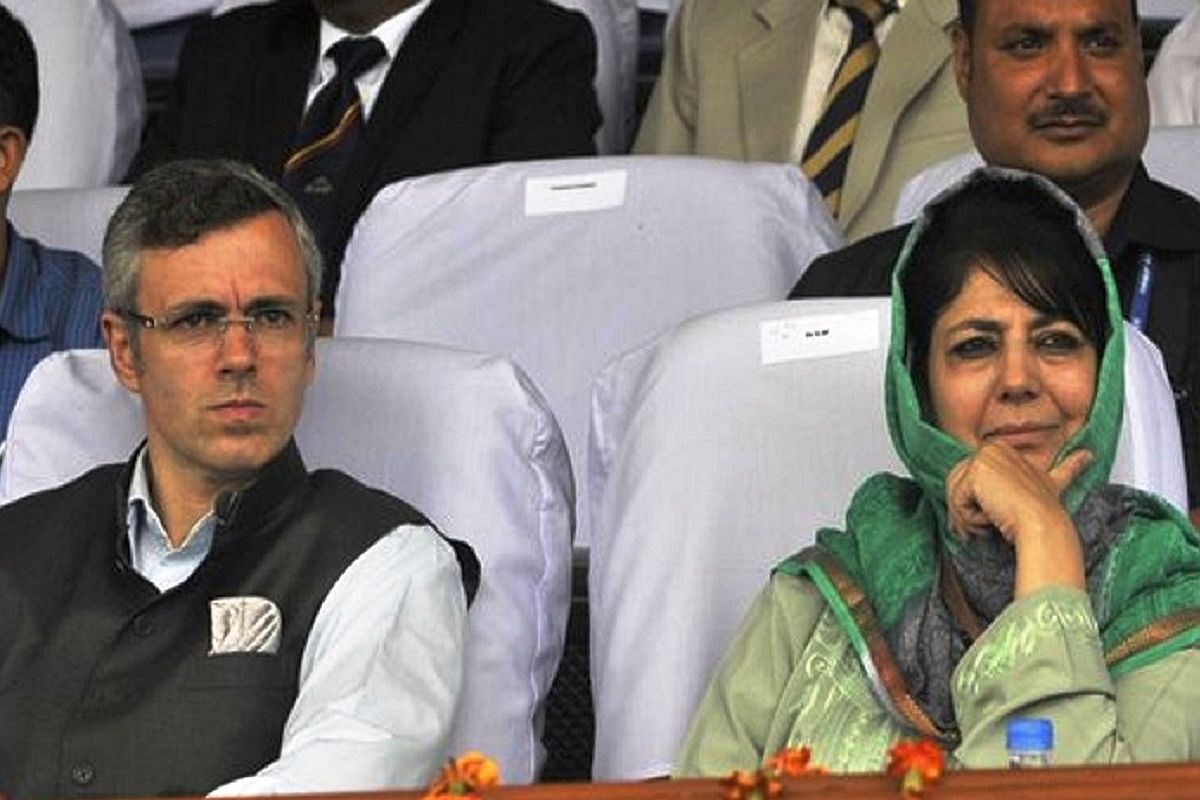As tensions escalated in Jammu and Kashmir, former chief ministers Omar Abdullah and Mehbooba Mufti were put under house arrest early on Monday morning.
National Conference leader Abdullah had earlier on Sunday night expressed apprehension that he was going to be placed under house arrest along with other mainstream leaders, while Peoples Democratic Party chief Mehbooba Mufti had called the development “ironic”.
Advertisement
“I believe I’m being placed under house arrest from midnight tonight & the process has already started for other mainstream leaders. No way of knowing if this is true but if it is then I’ll see all of you on the other side of whatever is in store. Allah save us.
“To the people of Kashmir, we don’t know what is in store for us but I am a firm believer that what ever Almighty Allah has planned it is always for the better, we may not see it now but we must never doubt his ways. Good luck to everyone, stay safe & above all PLEASE STAY CALM,” Abdullah said in a series of tweets.
Mehbooba Mufti, who tweeted about hearing “reports about the internet being snapped soon including cellular coverage” and “curfew passes being issued”, posted: “God knows what awaits us tomorrow. It’s going to be a long night.”
“In such difficult times, I’d like to assure our people that come what may, we are in this together & will fight it out. Nothing should break our resolve to strive for what’s rightfully ours.”
“How ironic that elected representatives like us who fought for peace are under house arrest. The world watches as people & their voices are being muzzled in J&K. The same Kashmir that chose a secular democratic India is facing oppression of unimaginable magnitude. Wake up India,” she further tweeted.
Governor Satya Pal Malik had held a late-night meeting with top officials shortly after the leaders tweeted about their house arrests.
Restrictions have been imposed across the Kashmir Valley from early Monday. Security has been tightened in Jammu and Srinagar in view of the imposition of Section 144 of Code of Criminal Procedure (CrPC)from 6 am today till further orders.
“As per the order, there shall be no movement of public and all educational institutions shall also remain closed. There will be a complete bar on holding any kind of public meetings or rallies during the period of operation of this order. Identity cards of essential services officials will be treated as movement passes wherever required. However, there is no curfew in place as reported in a section of media,” an official statement said.
Mobile internet services have been suspended across the state to “prevent anti-social elements from spreading rumours”.
All police stations, district and sector magistrates deputed on law and order duties have been provided satellite phones to maintain official communications.
All top officers of state police, paramilitary forces and intelligence agencies are supervising the situation to ensure that there is no major law and order problem if any major decision is announced in New Delhi that would alter the constitutional relationship of the state with the rest of the country.
All schools and colleges in the valley have been shut owing to the political crisis developing in the state. All Kashmir University examinations scheduled to be held from August 5 to August 10 have been postponed. No new dates have been announced yet.
However, in Ladakh, said officials, educational institutions would function as there are no restrictions in the region.
Jammu and Kashmir remained on the edge on Sunday as a major security build-up sparked fears and tensions among the locals and tourists.
The dramatic security clampdown has stoked fears that the Centre may have plans to scrap Article 35A, which gives exclusive rights to the state’s residents in government jobs and land, or Article 370 which gives autonomous status to the state.
Earlier last week, there were reports of over 28,000 additional troops of paramilitary forces being deployed in the Kashmir valley.
A week before, the Centre had issued an order for the deployment of additional 10,000 troops of the paramilitary forces comprising the CRPF, BSF, SSB and ITBP in Jammu and Kashmir in order to strengthen the counter-insurgency grid and for maintaining law and order situation in the state.
Recently, the Centre had deployed about 40,000 central paramilitary and state police personnel to secure the 46-day Amarnath Yatra in the state which began on July 1 and will conclude on August 15.
The yatra was called off on Friday amid statements by the India Army that it had received confirmed intelligence inputs on terrorists backed by Pakistan army trying to disrupt Amarnath Yatra in Jammu and Kashmir.
In view of the latest inputs on terror threats, the Jammu and Kashmir government issued a security advisory in the interest of the Amarnath Yatra pilgrims and tourists asking them to curtail their stay in the Valley and return as soon as possible.
However, Governor Satya Pal Malik told the state politicians “to maintain calm and not believe exaggerated rumours being circulated on the matter”.
He said this as he met a delegation of political leaders including Mehbooba Mufti, Shah Faesal, Sajjad Lone and Imran Ansari.
He informed the political leaders of credible inputs regarding terrorist attacks on the Amarnath pilgrims and assured them that the advisory was a precautionary measure as it is the responsibility of the state to provide security to all its citizens.
Meanwhile, Home Minister Amit Shah on Sunday presided over a high-level security meeting which was attended by National Security Advisor Ajit Doval, Home Secretary Rajiv Gauba, Intelligence Bureau (IB) chief Arvind Kumar, Research and Analysis Wing (RAW) chief Samant Kumar Goel and senior Home Ministry officials.
Considering the timing of the meeting it is expected that the minister might have discussed internal security as well as the situation in Jammu and Kashmir.











